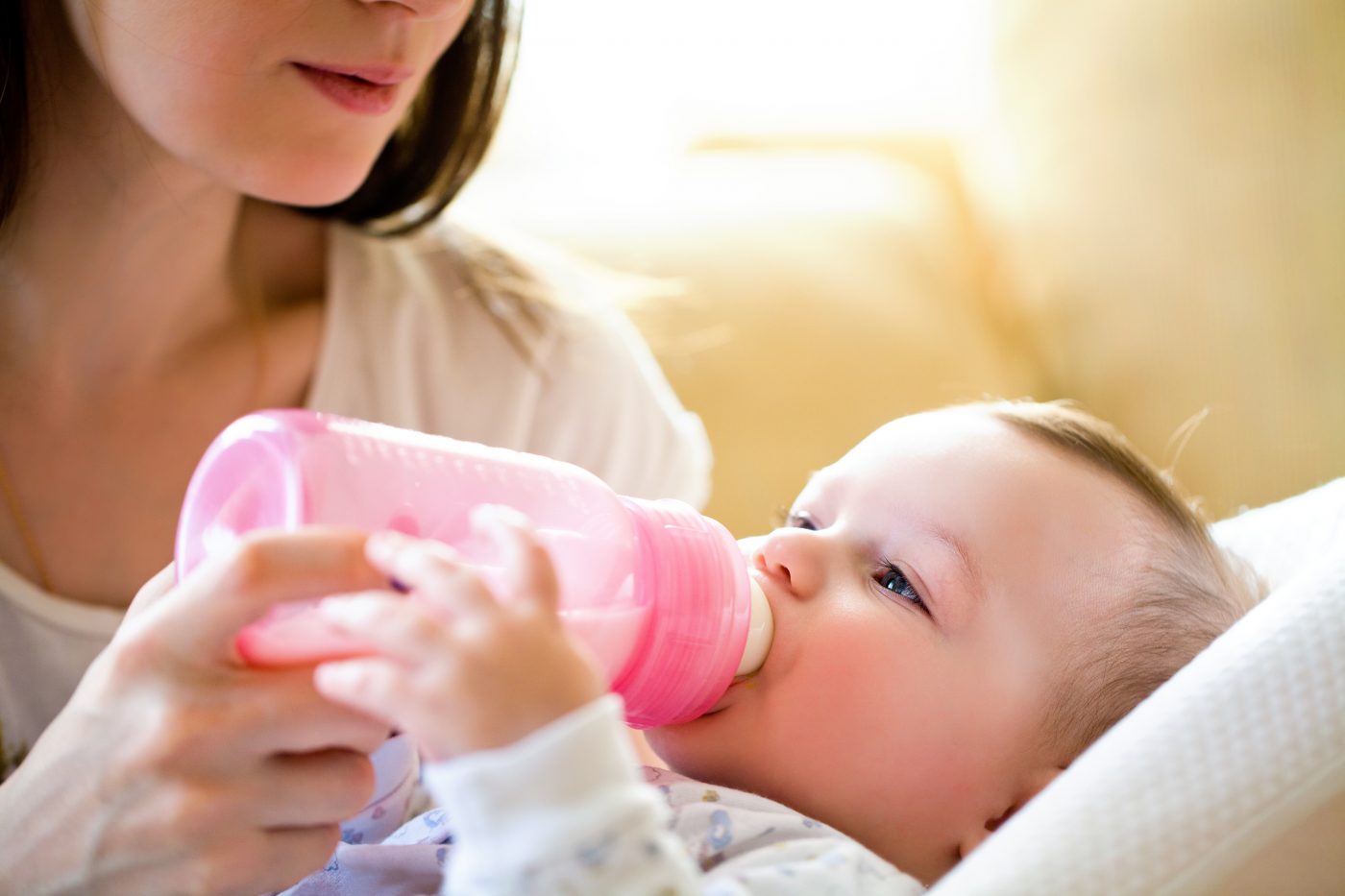
Babies vary in how often they want to feed and how much they want to drink. If your baby is sleepy or may be going through a period of faltering growth speak to your health visitor for guidance on how to ensure your baby is getting enough formula milk each day.
Most babies gradually settle into a feeding pattern but you should feed your baby when they show signs that they are hungry. Newborn babies tend to feed little and often, so they may not finish their bottle. However, a big feed does not mean that your baby will go longer between feeds.
Formula fed babies will need night feeds for at least the first few months of their life.
As you get to know your baby you will recognize her signs that she is ready for a feed:
Crying is a late sign of hunger so if you can spot these early signs before your baby starts crying your baby will be easier to feed.
However, remember that babies cry for lots of different reasons. If they have been successfully fed recently then hunger is unlikely to be the cause of their crying.
Your baby’s weight gain and the number of wet and dirty nappies will help to tell you if your baby is getting enough formula. Your baby should be producing around six wet nappies a day a few days after she was born. These nappies should be soaked through with clear or pale yellow urine.
For the first few days after birth, your baby will pass dark sticky poo (known as meconium). However, after the first week should pass pale yellow or yellowish-brown stools. Look at our poo gallery to see what meconium and formula fed poo looks like.
Your baby should have at least six wet and two dirty nappies each day. Babies produce different amounts of poo. However, if you are concerned your baby is not getting enough milk, speak to your midwife or health visitor quickly.
Your baby will be weighed (naked) at birth and again at around five and ten days. Once feeding is established, healthy babies should be weighed (naked) no more than once a month up to six months of age and at one year.
Your baby’s weight record should be completed on the chart in your Personal Child Health Record (the little red book). If you have any questions or concerns about your baby’s weight gain, speak to your midwife or health visitor.
If you are combining both breastfeeding and formula feeding and would like to discuss anything, such as increasing your milk supply, remember to talk to your midwife or health visitor. You can also call the National Breastfeeding Helpline on 0300 100 0212 to speak to someone, often local, about breastfeeding your baby.